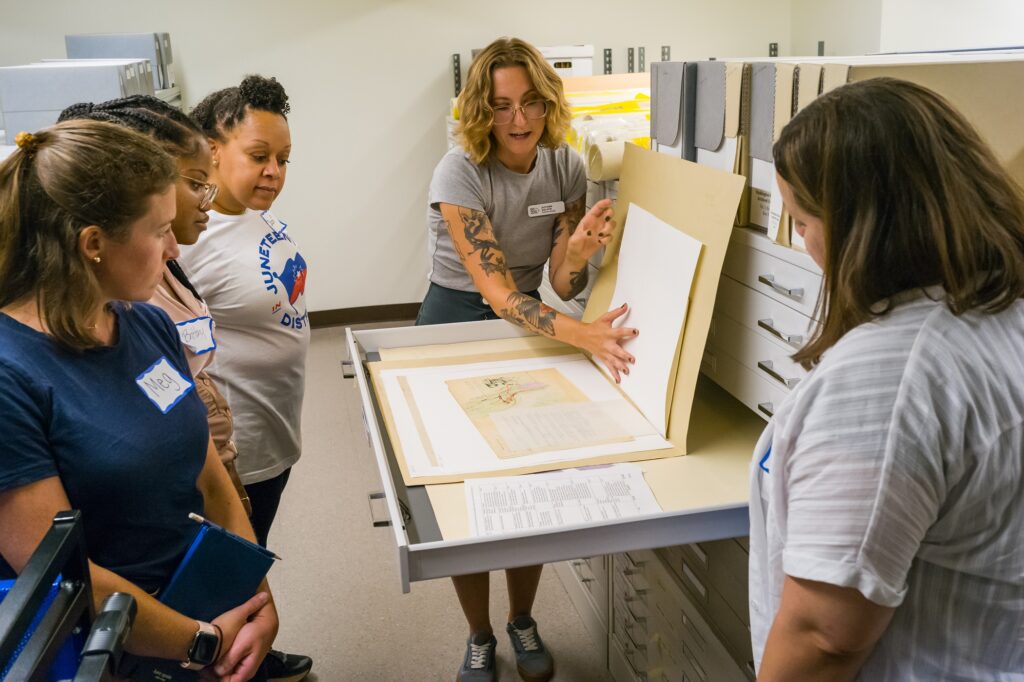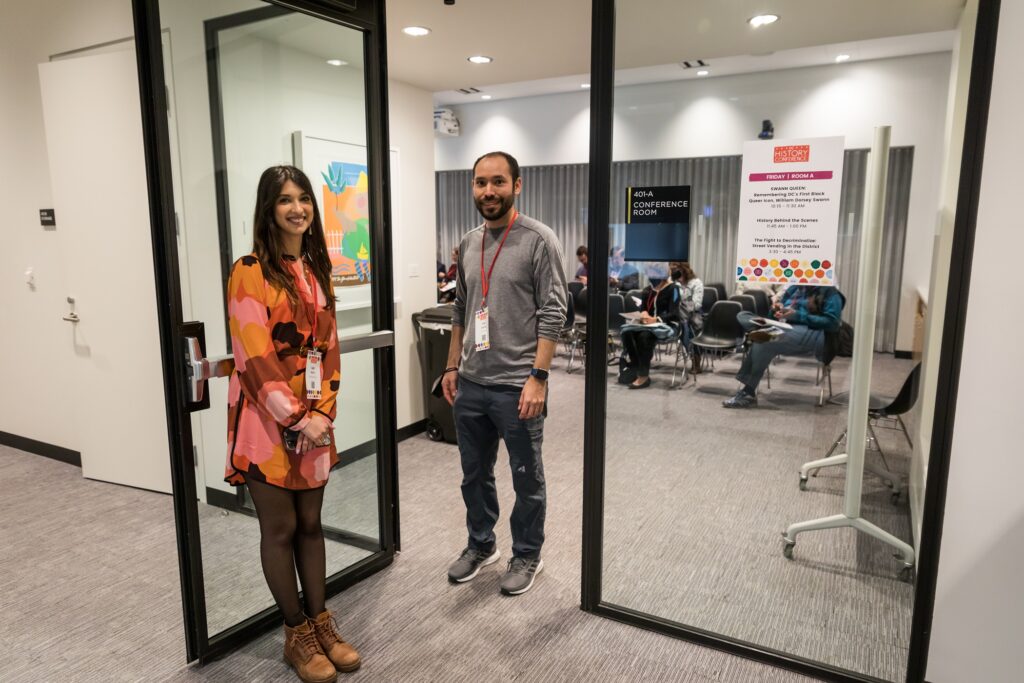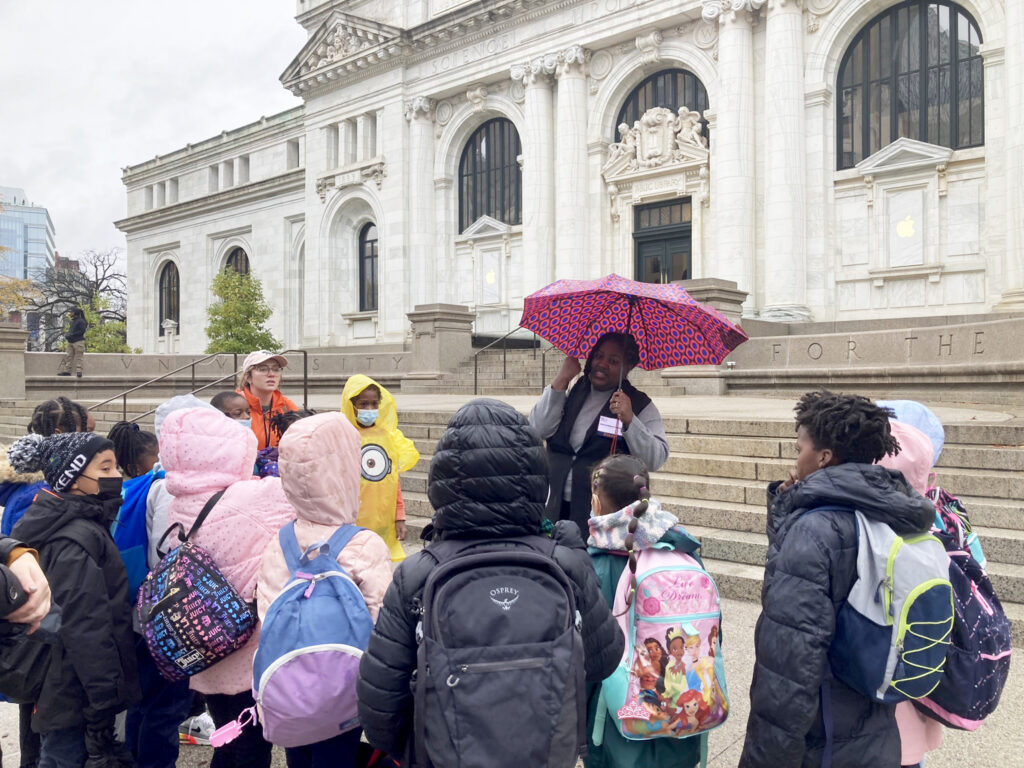
ACKNOWLEDGING THE ISSUE
It’s a poorly kept secret that nonprofit organizations can face significant challenges in retaining and rewarding valued staff members. Employees bring their passions to bear on a mission that matters to them, but find themselves disheartened by the limitations of their chosen workplace.
So, when the team at the DC History Center started digging into questions of equity and diversity in summer 2020—just as the Black Lives Movement was filling our streets—issues that related to human resource policies and institutional culture quickly came to the foreground.
This blog is intended to share with you—our stakeholders, our allies, our members—what we’ve learned from the work we began then. Recognizing that there’s plenty of room for growth, we’re at a point where we can communicate some of the steps we’ve taken. This is not to pat ourselves on the back, but to be transparent about how we’ve changed in these three years.
FAIR COMPENSATION
One of the first issues we tackled was fairness in pay. Arts and cultural organizations are notoriously on the low end of local pay scales, and benchmarking our salaries against similar institutions wasn’t doing us any favors. With the expert guidance of trustee and career human resources professional, Eileen Andary, in 2022 we conducted a thorough compensation study using an independent compensation consultant, Marcum LLP.
These advisors recommended that we align our salaries more broadly with nonprofits of similar size in our region. Their curated survey data allowed us to establish clear pay bands, and as a result, we have greater confidence that salaries are meaningfully competitive in the local marketplace. Salaries that fell short of their new ranges were increased, and our new public-facing part-time staff are now paid $20/hour, well above minimum wage.

In the meantime, we couldn’t help but recognize that we had been relying on unpaid labor to perform key functions. Deputy Director Anne McDonough tackles the topics of internships in a separate blog post, but much the same applied to speakers for our programs.
While it isn’t a lot, we now provide our speakers, authors, and tour guides with an honorarium or revenue-split that recognizes the value of their time. We also compensate teachers, particularly when they are providing invaluable feedback on our K-12 education resources. Though we still count on dedicated (and beloved!) volunteers in the Kiplinger Research Library and to welcome visitors, we’re moving in the right direction.
EMPLOYEE BENEFITS
The employee benefit package was pretty basic, and staff members with children were feeling left behind. Again, with Eileen and Marcum’s help, we compared our benefit packages with our nonprofit peers and found several areas for improvement. We added more holiday and vacation time and paid parental leave, among others. The biggest enhancement consisted of improved health premium contributions, including for dependents.

Next up, we’re in process of documenting our compensation philosophy, which will inform an updated employee handbook. This latter document will reflect the changes we’ve seen in the post-pandemic workplace, while providing staff with improved clarity on our human resource policies. In short, there’s still plenty of good work to do.
A CHANGE IN THE INDUSTRY
Best of all, we are not alone in steadily but diligently seeking equity and fairness. In a recent study by the American Alliance of Museums, 35% of responding museums have improved their benefit packages since 2019 or are planning to do so next year. Even better, 84% of responding museums have increased the hourly rate of their lowest paid employees as compared to 2019 or are planning to do so next year.
The DC History Center has increased its staff size significantly over the last few years, and we have kept a clear focus on our diversity and inclusion goals along the way. As a result, 50% of our 12 full-time staff are now people of color. I’m hopeful that these improvements will encourage this diverse and talented team to bring their best selves to work, balance the demands of work and family, and best of all, stay with us over the long term.
In closing, I would like to express our appreciation to our Board of Trustees for the many ways in which they have supported this journey. Over the last three years, the team as a whole has also played an essential role in bringing these institutional changes to fruition, and senior manager of operations and human resources, Erik Castillo, deserves a special shout-out for the many ways in which his work is making our lives better.
 Laura Brower Hagood is the Executive Director of the DC History Center, joining the organization in April 2020. She has 25 years of experience as a nonprofit leader and cultural entrepreneur, including a well-established track record in development, audience engagement, and community building. Laura earned a dual masters from American University in arts management and art history, where she teaches fundraising as an adjunct faculty member, and has a bachelors degree in English from Bryn Mawr College. She is a proud resident of Shaw.
Laura Brower Hagood is the Executive Director of the DC History Center, joining the organization in April 2020. She has 25 years of experience as a nonprofit leader and cultural entrepreneur, including a well-established track record in development, audience engagement, and community building. Laura earned a dual masters from American University in arts management and art history, where she teaches fundraising as an adjunct faculty member, and has a bachelors degree in English from Bryn Mawr College. She is a proud resident of Shaw.